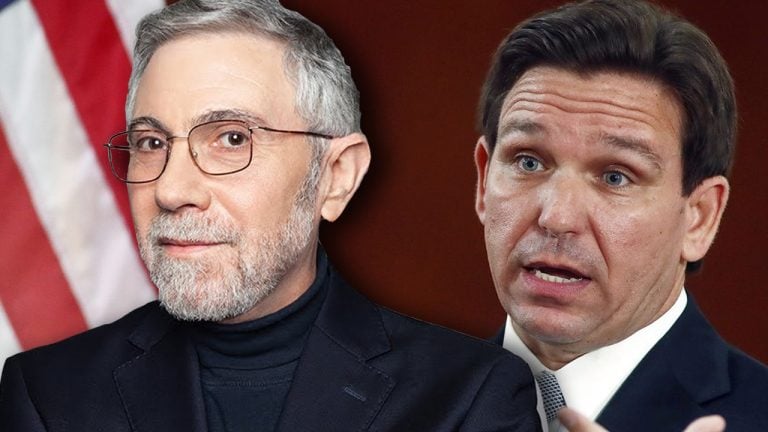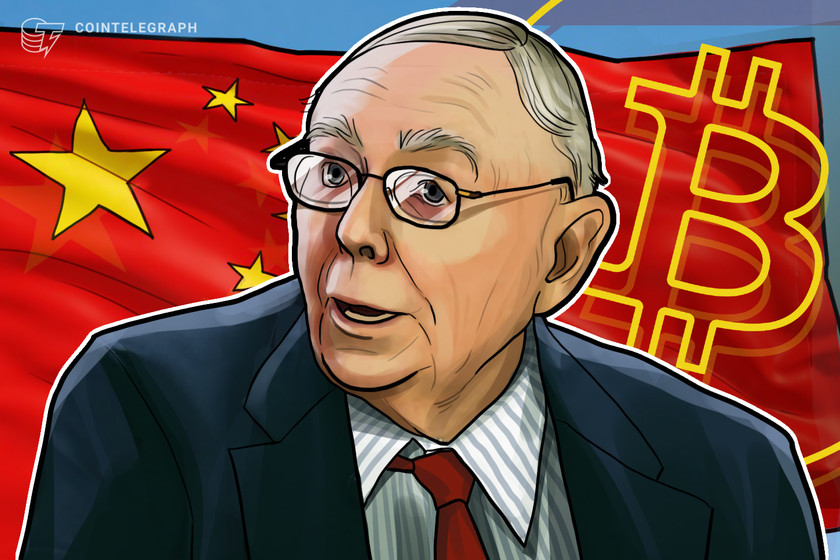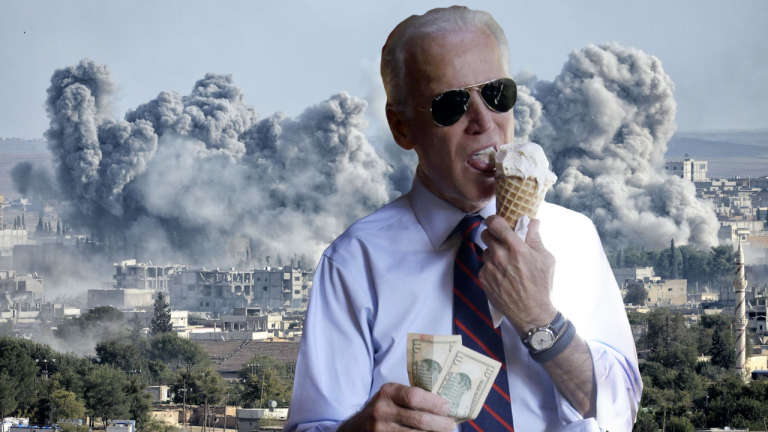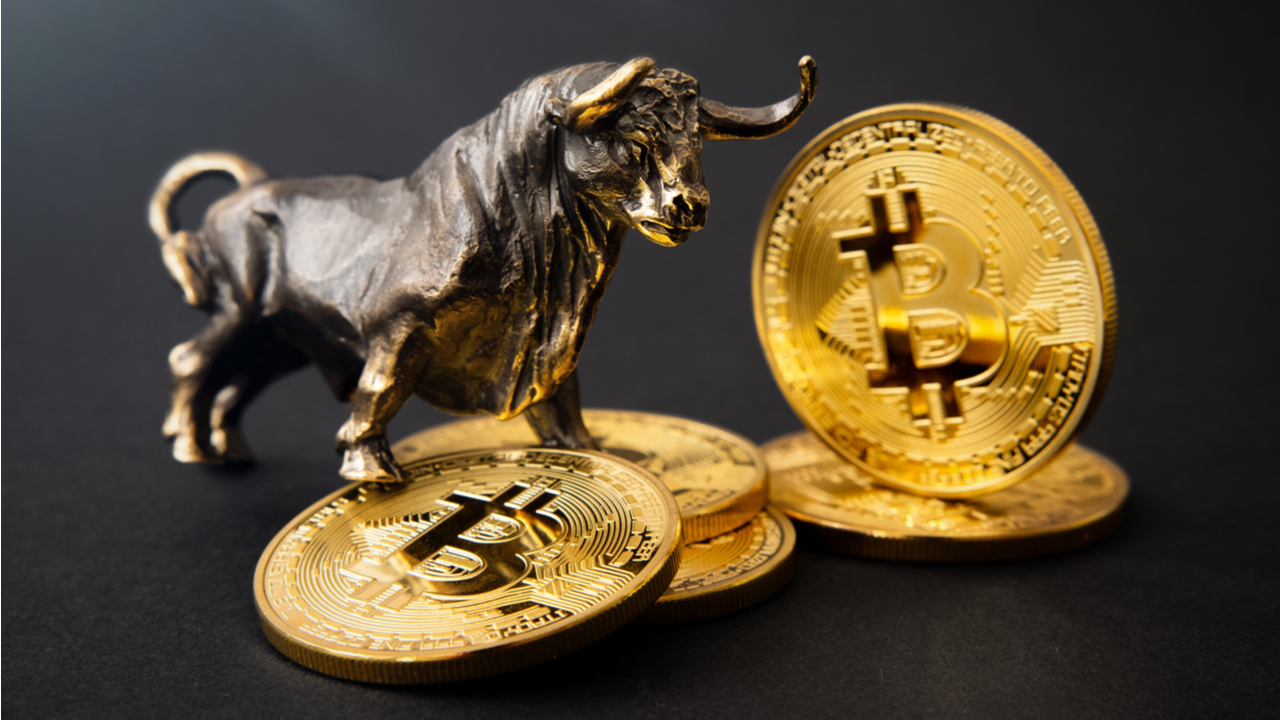 In an era increasingly defined by surveillance and oversight, Amir Taaki stands out as a key figure in the Bitcoin movement, sounding a clarion call for crypto awareness following the indictment of Samourai Wallet. Taaki’s latest initiative, “Darkfi,” seeks to pioneer a completely anonymous platform for collaborative fundraising and distribution, posing a challenge to existing […]
In an era increasingly defined by surveillance and oversight, Amir Taaki stands out as a key figure in the Bitcoin movement, sounding a clarion call for crypto awareness following the indictment of Samourai Wallet. Taaki’s latest initiative, “Darkfi,” seeks to pioneer a completely anonymous platform for collaborative fundraising and distribution, posing a challenge to existing […] Economist Paul Krugman questioned why Republican Florida governor Ron DeSantis opposes a central bank digital currency (CBDC) in a recent opinion editorial. Krugman suggested that DeSantis may be motivated by “general paranoia.” He speculated that DeSantis may be influenced by individuals who fear a digital currency could hinder “un-woke activities such as tax evasion and […]
Economist Paul Krugman questioned why Republican Florida governor Ron DeSantis opposes a central bank digital currency (CBDC) in a recent opinion editorial. Krugman suggested that DeSantis may be motivated by “general paranoia.” He speculated that DeSantis may be influenced by individuals who fear a digital currency could hinder “un-woke activities such as tax evasion and […]
The online community has expressed bewilderment over how China’s crypto ban aligns with the United States’ proclaimed principles of freedom.
The cryptocurrency community has ridiculed well-known Bitcoin (BTC) critic Charlie Munger, vice chairman of Berkshire Hathaway, for calling the United States to follow in the footsteps of China and ban crypto.
In an op-ed article in The Wall Street Journal, the 99-year-old investment veteran has once again slammed crypto, calling a cryptocurrency a “gambling contract with a nearly 100% edge for the house.”
Munger also said that a cryptocurrency is “not a currency, not a commodity, and not a security,” adding that “obviously” the U.S. should enact a new federal law that would ban crypto.
According to Munger, the best way to approach crypto is to follow the example of China, which put a blanket ban on crypto in September 2021. The Berkshire Hathaway vice chairman stated:
“What should the U.S. do after a ban of cryptocurrencies is in place? Well, one more action might make sense: Thank the Chinese communist leader for his splendid example of uncommon sense.”
The community was quick to react to Munger’s latest anti-crypto arguments, with many expressing bewilderment about how measures like China’s crypto ban stack up with the United States’ proclamations that it supports freedom.
“The battle lines are being drawn. Freedom or tyranny. Non-custodial wallets are the hill we can’t surrender,” NFT APE author Adam McBride wrote on Twitter.
Others also mocked Munger for not understanding that crypto is virtually unbannable. Indeed, even after “banning” crypto in 2021, China has continued to be the second-largest Bitcoin miner in the world, and possessing crypto is apparently still legal. Moreover, the idea of lifting the crypto ban has been floating around in China for a while.
It’s sad that Charlie munger believes he’s doing something by calling for a ban. Doesn’t understand it’s math and can’t be banned. Old age deteriorates critical thinking skills.
— 941 (@level941) February 2, 2023
Given that Munger called cryptocurrency a “gambling contract,” it’s worth noting that gambling is legal under U.S. federal law, despite people losing significant money from it.
Related: EU lawmakers vote for more restrictive capital requirements on banks holding crypto
According to data from the American Gaming Association, U.S. casinos and mobile gaming apps hit a record $54.93 billion in revenue during the first 11 months of 2022. The revenues came at the cost of Americans losing more money on gambling than ever before by the first quarter of 2022.
Many European countries also allow at least some gambling, with about 420,000 British gamblers losing more than $2,000 per year.
Despite casinos causing significant losses for investors, Europe and the U.S. have not followed in the footsteps of China, which banned most forms of gambling back in 1949.

The Agenda podcast explores the concept of financial sovereignty, Black American empowerment and the promise of Bitcoin with the revolutionary Najah Roberts.
If you ask 10 people what Bitcoin’s original purpose is, at least one person will say it’s meant to cut out the middleman, reduce the cost of transacting and empower those who might not have access to modern financial infrastructure.
While all of those boxes might be ticked, another phenomenon of financial technology, and technology in general, is that not everyone benefits equally from the revolutionary change it brings. Of course, this happens for a variety of unique reasons, some intentional and others unintentional, but the phenomenon of technological change leaving some people behind presents a rather unique question.
How can Bitcoin empower Black Americans?
In this week’s episode of The Agenda — a Cointelegraph podcast that explores the promises of crypto, blockchain and Web3, and how regular people level up and improve their lives with technology — hosts Ray Salmond and Jonathan DeYoung dig deep into the topic with Najah Roberts, an activist, educator and founder of several crypto-related organizations, including Black Bitcoin Billionaire, a brick-and-mortar Bitcoin exchange and a tech-focused children’s camp.
According to Roberts, Bitcoin (BTC) itself is the last great hope and opportunity for Black American empowerment; and for this reason, she has dedicated the last five years to spreading the good word of Satoshi Nakamoto and the basic tenets of financial literacy.

As a base case for her raison d’etre, Roberts explained that:
“The Emancipation Proclamation was signed over 150-something years ago. And at that time in this country, Black people in America held less than 1% of the wealth. And here we sit, in 2022, and factually, Black folks in America own less than 1% of the wealth. [...] Bitcoin affords us the opportunity to have some self-sovereignty and to be able, for the first time in history, to have control of our money — because he who holds the money rules everything. And so if we are holders of our money, we’ll be able to rule our own lives. And I’m excited about that for our community.”
Roberts explained that financial self-sovereignty is paramount, especially in systems like in the United States where the tools and resources that lead to generational wealth creation have historically been denied to certain groups.
Roberts said:
“We’ve got to get self-sovereign because nobody’s looking out for us except for us, and we got to get that in our head. And that’s what we’ve been teaching the community. So, Bitcoin is just the first stepping stone. Again, he who holds the money holds the power. And so we want to hold our own money so we have power to do the things that we need to do, not only in our families but in our communities. Because when it boils down, everything revolves around the economics.”
Related: Music NFTs are helping independent creators monetize and build a fanbase
When asked about Bitcoin’s high volatility, the proliferation of scams in the crypto sector and whether or not it’s smart to advise people with limited financial literacy skills to invest in an emerging, risky asset like Bitcoin, Roberts hinted that the revolution would not be televised.
According to Roberts, literacy is the gateway to self-sufficiency, so her initial focus, and that of the digital underground, is to first help people understand the value of saving, regardless of how much they are able to save. She emphasizes concepts that revolve around compound interest and dollar-cost averaging, and in regard to volatility, Roberts reminds potential investors that time in the market is more effective than attempting to time the market.
“I am not teaching our community to time the market because time in the market is better than timing the market. So, I’m teaching our community to dollar-cost average. [...] Whatever it is that you are doing on a regular basis, continue to do that, but just add some satoshis to your portfolio. So, if you’re going to Starbucks seven times a week, I’m not telling you don’t go to Starbucks — I’m saying go six instead of seven, or five instead of seven, and take that $6 from that coffee and buy yourself some satoshis.”
To hear more from Roberts, tune in to the full episode of The Agenda on Cointelegraph’s new podcasts page, Spotify, Apple Podcasts, Google Podcasts or TuneIn — and be sure to check out Cointelegraph’s other new shows as well.
The views, thoughts and opinions expressed in this podcast are the participants’ alone and do not necessarily reflect or represent the views and opinions of Cointelegraph.
 Bitcoin was once viewed as a means to opt out of violent, legacy financial systems. Now, it is being co-opted by the very same, and zealous newcomers to crypto think that’s a good thing, while still giving lip service to peer-to-peer values. Ignoring the problems with fiat money, they beg political interests and bad actors […]
Bitcoin was once viewed as a means to opt out of violent, legacy financial systems. Now, it is being co-opted by the very same, and zealous newcomers to crypto think that’s a good thing, while still giving lip service to peer-to-peer values. Ignoring the problems with fiat money, they beg political interests and bad actors […]
Is Bitcoin really bringing freedom to the world? Experts discussed the complexities of using Bitcoin as a tool for emancipation at a panel at Pacific Bitcoin.
"Bitcoin (BTC) is Freedom" is one of Bitcoin’s many epithets. Like “Bitcoin is digital gold,” “Bitcoin is property,” or even Bitcoin is absolute digital scarcity, these phrases ricochet around the walls of Bitcoin-themed conference arenas. They’re also memed into eternity on social media.
But one of Bitcoin’s overarching mantras is “Don’t trust, verify.” Rooted in an old Russian proverb, the phrase has come to define the Bitcoin ethos. It suggests rules, ideas, and concepts should be tested, tried and verified. So with that in mind, to what extent is Bitcoin actually freedom? How far can we make the point that Bitcoin is categorically a tool for freedom?
At the Pacific Bitcoin conference in Los Angeles, hosted by Bitcoin-only exchange Swan Bitcoin, this debate came to life. During a panel discussion succinctly entitled “Bitcoin is Freedom,” three freedom fighters and thinkers explored ways in which Bitcoin might not be as emancipating as it is evangelized online.

Craig Warmke, a professor at Northern Illinois University, Yan Pritzker, co-founder and CTO of Swan, and Alex Gladstein, chief strategy officer of the Human Rights Foundation, discussed the nature of magic internet money. Bitcoin does not have a central body, and it is unlikely to change its rules–or hard fork– any time soon. Crucially, Bitcoin fought off a serious threat to a change in source code during the blocksize war, which, in a sense, crystallized the Bitcoin code for at least the near term.
Now, naturally, the relationship between Bitcoin and freedom may vary and can depend on an individual's personal experiences and perspective. However, it’s taken for granted that Bitcoin is freedom due to its decentralized nature and ability to allow individuals to store and transfer value without the need for intermediaries or government control.
For example, Gladstein cited examples of individuals living in disadvantaged communities around the world. He observed that people who live under dictatorships and very repressive governments could use Bitcoin to achieve their goals and aims regardless of what their government wanted to do or what their government said.
“The reason why Bitcoin is freedom is it gives anybody with internet access and we can get to that property rights.”
Warmke expounded the idea, suggesting that much like a Dandelion flower, Bitcoin is spreading and is beautiful–but “Certain people's preferences about how they think the world should be leads them to want to–you know–kill it.” In this context, it’s the censorship-resistant properties of Bitcoin that contribute to it being a tool for freedom.
Nonetheless, for the people that do not understand or do not wish to understand Bitcoin, then it can not set them free. Yan Pritzker tackled this point head-on; he spoke of his home country Ukraine and the response Bitcoin embodied at the outset of the Ukraine - Russia war.

He explained that the Ukrainians “Had never heard of Bitcoin, didn't care about Bitcoin, didn't need Bitcoin. They were getting bombed. So that was not a good time to introduce them to Bitcoin. Right.”
“But it turned out that Bitcoin was a great way for us to get money over there just simply because it was the only thing that functioned on a Saturday in the middle of the night. That was the way that we could get money over to Ukraine and then convert it into local currency and get them to the local currency.”
He also nodded to another one of Bitcoin’s catchphrases, “You don’t need Bitcoin until you do.” In this instance, people who didn't understand or care about Bitcoin were suddenly helped by Bitcoin when they most needed it. And as a result, their level of freedom was improved thanks to Bitcoin.

Warmke shared that while Bitcoin has excellent properties of money, its low penetration in modern society and the fact that “It's not easy to use privately” mean that sometimes Bitcoin falls short in real-world situations. Take the Canadian trucker protests, in which money was successfully raised using Bitcoin, but not all of it was delivered:
“Some of it was confiscated. And part of the reason why is even if you might want to lay this at the fault of the people who are giving them Bitcoin or who had the bitcoin, so you blame the user.”
It can be extrapolated that for Bitcoin to serve as an outright tool for economic freedom, it must be used privately. And on top of that, it must be used with care and due attention.
Furthermore, there are “Not yet very many circular economies. And so if you want actually to spin the bitcoin that you receive, it's quite hard.” Bitcoin Circular economies describe areas such as El Zonte, or Bitcoin Beach, El Salvador in which Bitcoin is used almost exclusively, and there is no need to cash out into fiat money. The offramps into fiat money could undermine economic freedom as they expose a weakness for state capture.
The three Bitcoin advocates highlighted Bitcoin’s use case in emerging markets, where Bitcoin adoption is soaring at arguably faster rates than in the developed world. However, emerging markets are plagued with poor literacy levels and unreliable internet connections. These are significant hurdles to overcome to adopt freedom money, as Bitcoin requires internet–and a rudimentary understanding of maths and typically, English.

Gladstein agreed, explaining: “Bitcoin relies on, as you've seen yourself, the other journeys of literacy and of Internet access.” The Human Rights Foundation CSO explained that the journey to literacy and to internet access is on a positive growthtrend:
“But the good news is it looks like by the end of the decade of this decade that even in countries like Sudan and Senegal, way more than half of all of the people in those countries will know how to read and they'll have Internet access. So I think the potential is quite vast to make a difference.”
Plus, technical advances on Bitcoin geared to those living in the developing world are bringin more and more users online, without using the internet. For the illiterate, the solution lies with wallet developers in ensuring that users can still use Bitcoin.
But what about the price? The price per Bitcoin is down 70% from its highs. A loss of such extravagant amounts is paralyzing, not freeing. Philosopher Warmke invited the audience to lower their time preference and avoid focusing on short-term gains.
“In the long run this [Bitcoin] is a very, very freedom enabling thing because it does actually bring people that option to to have something of their own.”
Finally, Warmke also joked that his level of personal freedom has decreased since becoming a Bitcoin advocate because he checks the price too much!
Gladstein and Prtizker finished the panel on a sobering note. Gladstein explained that for some people living in authoritarian regimes, Bitcoin “Literally means life or death. In some cases, it is literally the only way they can do what they can do.” In this context, Pritzker suggested “To spend more time looking at other countries and what's happening there. And I think you're going to see that Bitcoin is enabling freedom in a big way.”

“Free speech is a prerequisite for having freedom of money, which we are building for,” said CZ, highlighting the importance of Twitter as a platform to voice opinions.
The acquisition of Twitter by billionaire Elon Musk got mixed reactions from crypto and global communities, sparking discussions around changes to censorship, account verification and the launch of new crypto and blockchain-centric features. However, Binance CEO Changpeng “CZ” Zhao’s decision to invest $500 million in the social media site took the limelight.
Acknowledging the buzz, CZ shared six reasons why he opted to support Twitter and what it may mean for the future of Twitter.
Ever since Twitter’s new sink was in, I was asked about it in every interview. And I had many interviews last week. So, here is a summary.
— CZ Binance (@cz_binance) November 4, 2022
Why did we do it? 6 reasons.
CZ’s primary reason for investing in Twitter was his belief in free speech. “Free speech is a prerequisite for having freedom of money, which we are building for,” said CZ while highlighting the importance of Twitter in providing a common platform where the general public and prominent figures can voice their opinions.
The second reason for the fund injection is related to Binance’s support for entrepreneurs. In CZ’s words, “With Elon at the helm, we believe Twitter will continue to grow and become an impactful platform for everyone.”
CZ listed “tremendous untapped value” as the third reason for the investment, as he believed that the social media platform could deliver innovative business models without the need for selling user data. With this potential at the backdrop, CZ offered to help with Web3 integration for Twitter, which was also his fourth reason.
The fifth, however, was a personal one for CZ. Twitter has been crucial to CZ in maintaining open communication with the crypto space, including entrepreneurs, investors, journalists and the general public.
CZ also revealed having a similar mindset to Musk — the sixth reason — when it comes to making changes to Twitter, which includes eliminating bots, adding an edit button, paying for blue ticks and paying for commenting on posts.
“Entrepreneurs don't plan. We execute and adjust,” said CZ as he revealed no etched-in-stone plans for Twitter. While addressing Crypto Twitter, Binance CEO stressed that Twitter was a long-term investment and is not bothered by short-term stock price fluctuations and market conditions.
Related: How CZ built Binance and became the richest person in crypto
According to CZ, central bank digital currencies (CBDCs) are not a threat to the crypto ecosystem.
On the contrary, he said mainstreaming CBDCs would validate and improve trust in blockchain technology. Last year, CZ refuted the idea of CBDCs, stating that they would not be able to match the freedom offered by Bitcoin (BTC) and Ether (ETH).

Former Kraken CEO Jesse Powell previously warned crypto investors about the risks of holding crypto on a centralized exchange.
Kraken is the latest cryptocurrency exchange to restrict accounts of Russian users on its platform in compliance with sanctions from the European Union.
On Oct. 19, Kraken sent out email statements to its Russian clients to announce that the exchange is halting services to its Russian customers.
“Due to the new European legislation, we have to take measures to restrict your Kraken account,” the company said. According to an email statement seen by Cointelegraph, Russian users would be able to withdraw their funds by request.
“We will update our support center if there are any changes,” Kraken noted, adding: “We apologize for the inconvenience caused.”
Kraken didn’t specify whether there’s a time limit to withdraw the funds from the exchange for Russian citizens. A spokesperson for Kraken told Cointelegraph that the firm complies with the “legal and regulatory requirements in all jurisdictions” of its operations. “Since the EU’s announcement, we have been working to make the changes needed to comply with the latest package of sanctions against Russia,” the representative noted.
The latest restrictions on Kraken are not the first time the exchange has dealt with regulators forcing centralized exchanges to shut down certain accounts.
In February 2022, former Kraken CEO Jesse Powell condemned the Canadian authorities for freezing crypto wallets involved in funding local COVID-19 protests. He explicitly warned the public that Kraken could be forced to freeze some wallets by regulators, advising crypto investors to move crypto out of exchanges.
“If you’re worried about it, don’t keep your funds with any centralized or regulated custodian. We cannot protect you,” Powell said at the time.
By restricting Russian users on its platform, Kraken joins the increasing number of global crypto exchanges and wallets that stopped servicing Russians in compliance with the latest EU sanctions against Russia.
As previously reported, several crypto firms, including Blockchain.com, Crypto.com and LocalBitcoins, have ceased operations for Russians.
Related: Russian users are welcomed by crypto exchanges in Kazakhstan, but there’s a catch
Bitfinex, one of few exchanges that previously opposed banning non-sanctioned Russians from using its platform, appears to have been forced to comply with sanctions as well.
“We comply with all the regulations under which we are bound and are monitoring this situation closely,” Bitfinex’s senior PR manager, Joe Morgan, told Cointelegraph on Oct. 20. Bitfinex chief technology officer Paolo Ardoino previously recommended that investors use noncustodial hardware wallets to better protect their funds.
The new crypto sanctions are part of the EU’s eighth package of sanctions that were imposed on Oct. 6. The sanctions put a blanket ban on any crypto transactions and payments between Europe-regulated companies and Russian users. The EU initially adopted its first crypto sanctions against Russia in April, limiting Russian users or residents from trading if their holdings exceeded 10,000 euros ($10,000) at the time.
 Tim Draper, an early bitcoin investor, has declared he is still optimistic about the value of the first cryptocurrency even with the downturn its price has taken in the last months. Draper believes that the asset is still valuable as an inflation hedge, and that the market we are navigating right now is “very similar” […]
Tim Draper, an early bitcoin investor, has declared he is still optimistic about the value of the first cryptocurrency even with the downturn its price has taken in the last months. Draper believes that the asset is still valuable as an inflation hedge, and that the market we are navigating right now is “very similar” […]
"Freedom Day means you are free to use your own money to live your best life," said BitcoinZAR, a Bitcoin advocate in South Africa.
On Wednesday, South Africa celebrated Freedom Day, which honors the country's first post-apartheid democratic election in 1994.
Cointelegraph reached out to different notable individuals in the South African crypto community to see what the holiday meant to them. BitcoinZAR, a Bitcoin advocate in South Africa, noted that "Freedom Day means you are free to use your own money to live your best life," adding:
“We are free on Freedom Day to choose Bitcoin instead of losing value with government money. Stop aiding and abetting state capture, corruption and looting in South Africa. Vote with your money, and buy Bitcoin.”
Several crypto-related firms have sprouted in the nation, including Luno, a cryptocurrency exchange, while several businesses now take Bitcoin payments, including retail stores and travel companies.
Luno, which was founded by two South Africans in 2013, now has 10 million customers in over 40 countries. The company's rapid expansion was demonstrated by adding one million new clients in four months last year. In 2017, South Africa's then-largest online retailer, Pick n Pay, began accepting Bitcoin payments at one of its stores, hinting at cryptocurrency's potential as a form of payment.
Freedom day is celebrated today in South Africa. Freedom is a scary notion. To be free one needs to accept personal responsibility. #Bitcoin will naturally stir you in the direction of learning and making choices instead of waiting for those in power to hopefully take care of you pic.twitter.com/Ib7h50XAdq
— UNRAVEL SURF TRAVEL (@UnravelSurf) April 27, 2022
Unravel Surf Travel is a South African travel company that began accepting Bitcoin in 2015. According to the travel company, it has primarily served the Russian/Eastern European market since 2011, providing surfing trips to South Africa. The region is presently in upheaval because of Russia's military incursion into Ukraine. Western sanctions and fiat currency volatility have made Unravel Surf Travel's clients more open to paying for trips in cryptocurrency. The travel firm added that:
"Since 2015, we've used Bitcoin to receive payments from clients who wish to travel and enjoy a South Africa surfing experience but would otherwise have been prevented from doing so. Thanks to Bitcoin, we could operate, earn a living, and our clients could travel, despite what their often dubiously elected officials did."
Lukhangele Brabo, a 17-year-old South African who is a Bitcoin supporter and advocate, explained to Cointelegraph why Freedom Day is so important to him. Brabo said that "Freedom Day means having the greatest power and right to act." Brabo used to work at Surfer Kids in Diaz Beach, South Africa, where he used to receive a salary through fiat. Unfortunately for him, his family used to take all of his money when he was a young man, leaving him with no alternative source of income. However, things began to look up for him after he discovered Bitcoin from Bitcoin Ekasi, a well-known South African Bitcoin advocate:
"Now, what happened is l stopped getting paid in fiat and l started receiving my weekly salaries in Bitcoin that became very interesting because l realized that OK, Bitcoin is safer than fiat because no one can take it away from me. It's on my phone and it's safer. No matter what they did to try and take it all it couldn't work because why? They don't know how it works and how to use it."
Related: The Central African Republic reportedly passes a bill to regulate crypto use
Almost 20% of South Africans, according to Borgen Magazine, survive on less than $1.90 a day. Both inequality and poverty in South Africa are exacerbated by widespread corruption. Former President Jacob Zuma oversaw rampant corruption from 2009 to 2018. Zuma is estimated to have cost South Africa at least $35 billion and perhaps more than three million people fell below the poverty line during his term.